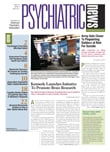On February 23, the Food and Drug Administration (FDA) announced that it had notified Biotab Nutraceuticals Inc. that two lots of a counterfeit product purporting to be Extenze, Biotab's over-the-counter herbal supplement marketed for "natural male enhancement," had been discovered. Not only were they counterfeit, but the lots also contained undeclared drug ingredients, including the erectile dysfunction drugs tadalafil and sildenafil (Cialis and Viagra), and sibutramine, formerly marketed as Meridia for weight control.
Although the counterfeit Extenze was not manufactured, distributed, or packaged by Biotab, it was falsely marked with the same lot numbers used by Biotab for its genuine product. So difficult was it to distinguish the counterfeit packages that Biotab voluntarily recalled the two affected lots it had manufactured, even as the FDA warned that other counterfeit formulations might still be circulating.
The discovery is cause for concern because, although tadalafil and sildenafil are approved for use, they can interact with nitrates found in some prescription drugs (such as nitroglycerin) and lower blood pressure to dangerous levels. Men with diabetes, high blood pressure, high cholesterol, or heart disease often take nitrates and also commonly experience erectile dysfunction and therefore might be enthusiastic consumers of "natural" products like Extenze. The inclusion of sibutramine in these products, however, might pose an even greater hazard.
Sibutramine had a respectable beginning. Originally eyed as an antidepressant, it was repositioned as a weight-control drug once its ability to suppress the appetite by inhibiting the reuptake of the neurotransmitters norepinephrine and serotonin was recognized. Indications that it had the ability to increase thermogenesis and decrease food intake made it that much more attractive for development. Sibutramine was given the trade name Meridia by Abbott Laboratories and approved by the FDA in November 1997 for weight loss and maintenance of weight loss in obese people, although its amphetamine-like properties led the Drug Enforcement Administration to classify it as a Schedule IV drug, capable of habit-forming results.
Severe Side Effects Soon Reported
But, like other once-promising weight-control drugs such as phentermine and orlistat, sibutramine had its downside, and it was a big one: reports of sudden death, heart failure, renal failure, and gastrointestinal problems led the FDA to question its safety. The Sibutramine Cardiovascular Outcomes Trial (SCOUT) was initiated as part of a postmarket requirement to look at the cardiovascular safety of sibutramine after its European approval. Results, published in the European Heart Journal in 2007, were daunting: The trial demonstrated a 16 percent increase in the risk of serious cardiac events, including nonfatal heart attack, nonfatal stroke, the need to be resuscitated once the heart stopped, and death in a group of patients given sibutramine compared with a group given placebo. Even more disappointing was the small difference in weight loss between the placebo group and the group that received sibutramine.
"Meridia's continued availability is not justified when you compare the very modest weight loss that people achieve on this drug to their risk of heart attack or stroke," said John Jenkins, M.D., director of the Office of New Drugs in the FDA's Center for Drug Evaluation and Research. "Physicians are advised to stop prescribing Meridia to their patients, and patients should stop taking this medication. Patients should talk to their health care provider about alternative weight loss and weight loss maintenance programs."
Under pressure from the FDA, Abbott Laboratories agreed to voluntarily withdraw Meridia from the U.S. market on October 8, 2010.
Subutramine Continued to Appear
The Extenze incident isn't the first time sibutramine has appeared, undeclared, in over-the-counter products. In December 2008, the FDA issued an alert to consumers naming 27 products marketed as dietary supplements for weight loss that illegally contained undisclosed amounts of sibutramine. An additional 34 sibutramine-contaminated products were recalled by the FDA on April 22, 2009.
In January 2010, the FDA warned the public about a counterfeit version of the weight-loss drug Alli being sold over the Internet, particularly at online auction sites. Authentic versions of Alli contain over-the-counter amounts of orlistat; the counterfeit versions contained high doses of sibutramine.
Despite the FDA's efforts, counterfeit and contaminated products containing sibutramine and other undeclared ingredients offered for weight loss and treatment of erectile dysfunction continue to be detected.
"These contaminants pose a risk precisely to the individuals for whom the product is advertised," said Gary Kennedy, M.D., a professor of psychiatry and behavioral science at Montefiore Medical Center, Albert Einstein College of Medicine. "Physicians should routinely ask patients about their use of supplements, especially in the context of a new prescription or when questions about side effects arise. When a patient uses an FDA-approved medication for erectile dysfunction, the risks are quantified and largely predictable. With nutraceuticals and supplements, the situation is ‘buyer beware’ because, as these recalls demonstrate, we don't know what is in those formulations."
